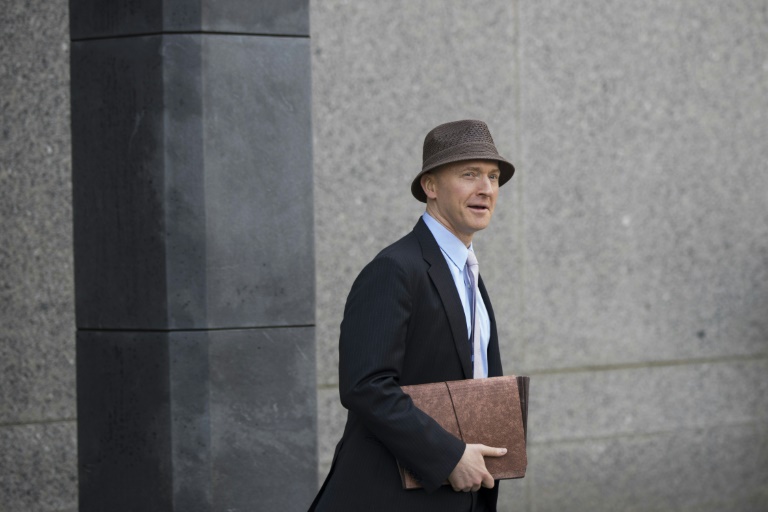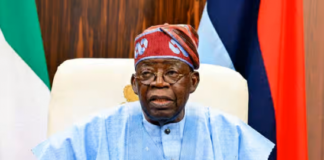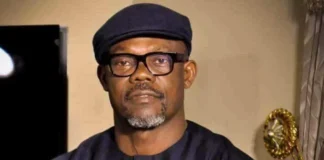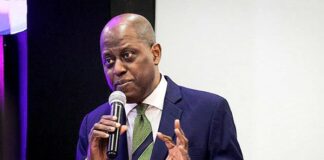The FBI believed that a former campaign advisor to Donald Trump was “collaborating” with Russia as it worked to influence the 2016 presidential election, top secret documents released to US news organizations have revealed.
The US president hit back Sunday, portraying the wiretapping of his ex-aide as part of a partisan and “illegal” conspiracy because the FBI partly relied on information provided by Democrat-funded research in seeking its warrant.
The October, 2016 application to the Foreign Intelligence Surveillance Court named Carter Page, a former foreign policy advisor to the Trump campaign, according to the documents published late Saturday by The New York Times.
The newspaper, along with USA Today and others, filed Freedom of Information Act lawsuits to obtain the material, which the Justice Department released but with many details redacted.
“The FBI believes Page has been the subject of targeted recruitment by the Russian government,” the initial FBI application says before it is blacked out and continues: “undermine and influence the outcome of the 2016 presidential election in violation of US criminal law.”
“The FBI believes that Page has been collaborating and conspiring with the Russian government,” the document adds lower down.
Release of the documents comes just over a week after Special Counsel Robert Mueller, probing possible collusion between Trump’s 2016 campaign and Russia, indicted 12 Russian intelligence officers, accusing them of hacking Democratic challenger Hillary Clinton’s campaign to steal documents, which were then publicly released.
It also caps a week dominated by Trump’s extraordinary inaugural summit with Vladimir Putin, at which he seemed to take at face value the Russian leader’s denial of election meddling, dismissing the findings of his own intelligence chiefs.
In a series of tweets on Sunday, Trump said the release confirmed the surveillance of his campaign was a “Witch Hunt” because some of the information that led to the wiretapping was provided by former British intelligence agent Christopher Steele, who was hired on behalf of the Clinton campaign in 2016.
But Trump’s tweets did not address the fact that the FISA application revealed its sourcing at length and was approved by a judge, before being renewed three more times by three other judges.
– ‘Candidate #1’ –
The surveillance of Page became in February the subject of intense rivalry between lawmakers from Trump’s Republican Party and their Democratic counterparts.
The former released a memo claiming Democratic-funded research prompted the FBI to spy on Page and that the agency was not sufficiently candid with the court about its sourcing.
Trump defied his own FBI director and the Justice Department to declassify the four-page Republican document, which was based on the much larger secret court application record which has now been released.
A counter-memo subsequently made public by the Democrats had argued the surveillance request “was based on compelling evidence and probable cause.”
Writing on the Lawfare blog, David Kris, who has served as a prosecutor under the George W. Bush and Barack Obama administrations, argued the Republican memo now stood exposed as dishonest.
“Now we can see that the footnote disclosing Steele’s possible bias takes up more than a full page in the applications, so there is literally no way the FISA Court could have missed it,” he said. “The FBI gave the court enough information to evaluate Steele’s credibility.”
In the documents released Saturday, the FBI cited a source which, it said, had a history of providing reliable information regardless of the source’s reasons for conducting research into Trump’s ties to Russia.
Trump is not named in the document but identified only as “Candidate #1.”
– Advisor to Kremlin –
The FBI, in its initial application the month before Trump won the election, said it “believes that the Russian Government’s efforts are being coordinated with Page and perhaps other individuals associated with Candidate #1’s campaign.”
It added that “Page has established relationships with Russian Government officials, including Russian intelligence officers.”
Page has not been charged. Appearing on CNN on Sunday, Page denied the allegations. “I’ve never been an agent of the foreign power in any — by any stretch of the imagination.”
He added: “To call me an advisor, I think is way over the top,” before host Jake Tapper interjected to cite a 2013 letter written by Page in which he called himself “an informal advisor to the staff of the Kremlin.”















